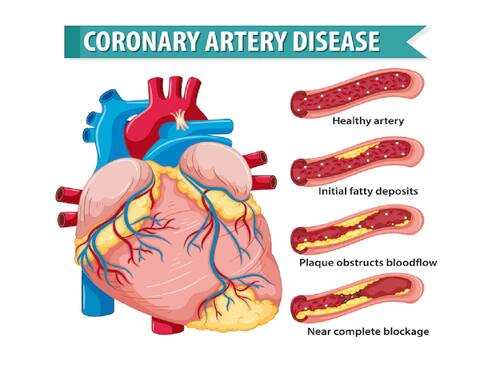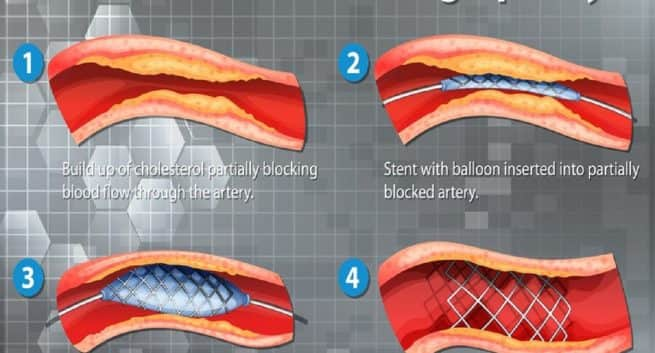
The survival of patients with coronary artery disease has improved significantly in the last decade. Check out some of the latest advances in the treatment of heart disease.
Coronary artery disease (CAD) has been one of the leading causes of mortality worldwide. Thanks to the evolution of medical treatment, interventional methods, and mechanical circulatory support devices, survival of the patients with coronary artery disease has now improved to a great extent.
Coronary arteries supply oxygen-rich blood to the heart. Coronary artery disease develops one or more of your coronary arteries become narrowed or blocked due to plaque buildup in these arteries. This can lead to a heart attack, arrhythmia, heart failure, and other complications. Common symptom of CAD includes angina (temporary chest pain or discomfort), and shortness of breath (dyspnea). However, one may have CAD for many years without any symptoms until they get a heart attack. Hence, coronary artery disease is called a “silent killer.”
Now, let’s talk of about the treatment of heart disease and we are joined by Dr Sharath Reddy Annam, Senior Consultant Interventional Cardiologist, Director of Cath Lab, Director of CTO and Complex Coronary interventions, TAVR & Structural Heart interventions, Medicover Hospitals.
Latest Technologies Used In The Treatment Of Heart Disease
Below Dr Sharath has listed some of the important advances made in the CAD treatment and management in the last decade.
Primary angioplasty: Emergency reopening of blockage in acute heart stroke patients has become the main mode of therapy leading to better survival in the short term along with preservation of heart pumping function in long-term preventing patients going into heart failure.
The Impella device: Treating patients with coronary artery disease and severe LV dysfunction had been the toughest for cardiologists a decade before. The newer devices to support heart pumping (Impella) and emerging data about its usefulness in such patients catapulted heart teams to find novel and safe revascularization solutions for these patients.
Mechanical Circulatory Support (MCS): Acute heart stroke with cardiogenic shock (dropping blood pressures below 90) is considered the last frontier for the cardiology community as the outcomes have not been changed much despite mechanical circulatory support devices and revascularization strategies. Data is emerging lately about improved survival in this clinical setting by using MCS devices and escalating therapy to transplant an LVAD as and when needed.
Transcatheter aortic valve replacement (TAVR): Last decade has seen significant transformation in therapies of valvular heart disease. Open heart surgery to replace aortic valve has now been treated without anesthesia or opening the chest by using TAVR. Many valves were introduced recently which reduce the cost of this therapy making it affordable for more and more needy people.
Valve leakages (Mitral valve, Tricuspid valve), which were amenable for corrections only by open heart surgery, are now can be repaired with percutaneous methods in selected cases avoiding surgery.
Heart failure therapies have seen tremendous progress with the new data which showed LVAD survival at 5 years equivalent or slightly better than cardiac transplant. This therapy would definitely change the survival and quality of life in patients with heart failure, Dr Sharath added.
Total Wellness is now just a click away.
Follow us on






